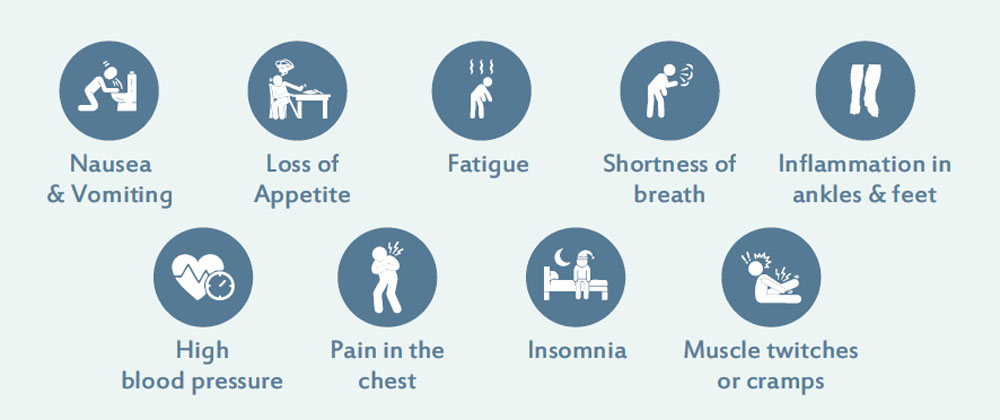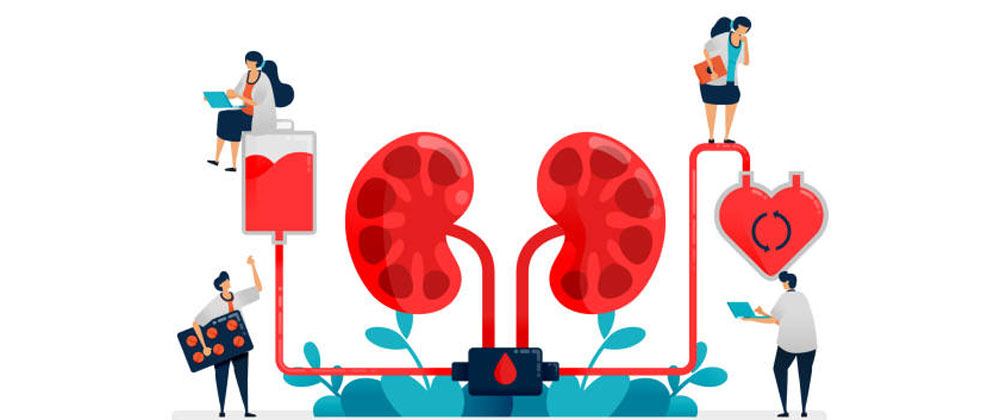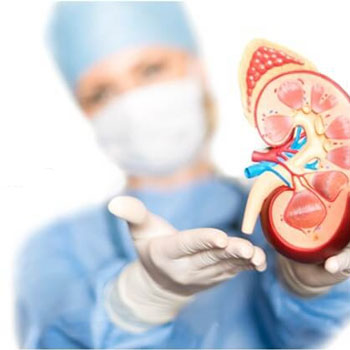End Stage Renal Disease, often known as Kidney Failure, is a condition in which the chronic kidney disease reaches the advanced stage. In this disease, the kidneys fail to perform their functions to meet the body's requirements.
In a healthy person, the kidneys wash out all the excess fluids or wastes in the blood through the urine. But when the kidneys fail to filter out these excesses, dangerous levels of wastes get accumulated in the body.
In cases of kidney failure, the medical experts carry out the process of kidney dialysis, which helps infiltrate blood and perform the general functions of the kidney. But, it is also important to note that dialysis does not provide a one stop solution for kidney failure. The patient suffering from kidney failure may need a transplant. It's best to consult a specialist to understand the treatment options better.
Symptoms of Kidney failure
The worst part about kidney failure is that signs & symptoms may not appear until irreversible damage has already occurred. That means, a patient may only notice symptoms as chronic kidney disease (CKD) progresses to kidney failure or ESRD and not during the early stages of CKD.

Why does kidney failure occur?
Certain underlying conditions & diseases can lead to kidney disease. These include:
- Type 1 or Type 2 diabetes
- High Blood Pressure
- Glomerulonephritis
- Polycystic Kidney disease
- Vesicoureteral reflux
- Recurrent kidney infection
Types of kidney failures
Chronic post-renal kidney failure: The condition of chronic postrenal kidney failure is caused due to prolonged blockage of the urinary tract, which further leads to the development of pressure in the urethra. This eventually leads to blockage during urination and ultimately kidney failure.
Acute intrinsic kidney failure: The condition of acute intrinsic kidney failure can be caused due to multiple factors such as an overdose of toxins, accidental fracture of the kidney, and ischemia which essentially means lack of oxygen in the kidney. All of these factors can eventually contribute to kidney failure.
Acute prerenal kidney failure: Out of all the different types of kidney failures the acute prerenal kidney failure can ultimately be cured. This condition develops when there is a lack of flow of blood in the kidneys; due to the lack of blood flow, the kidneys are unable to filter out the toxins from the blood, which ultimately leads to kidney failure.
Chronic prerenal kidney failure: The condition of chronic prerenal kidney failure develops due to lack of flow of blood in the kidneys, which ultimately leads to the malfunctioning of the kidneys due to shrinking.
Chronic intrinsic kidney failure: This condition can also be known as the last stage of intrinsic kidney disease since chronic intrinsic kidney failure occurs due to long term physical trauma to the kidneys caused by lack of blood flow or shortage of oxygen to the kidney.

Can kidney failure be prevented?
If you have kidney disease, the following measures can help slow down the disease progression significantly.
- Maintaining ideal body weight
- Having an exercise routine
- Limiting protein intake
- Monitoring blood pressure levels
- Taking medications as prescribed
- Quitting tobacco
- Getting regular health check ups

